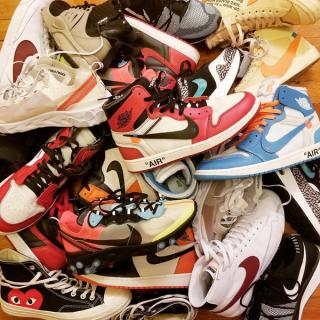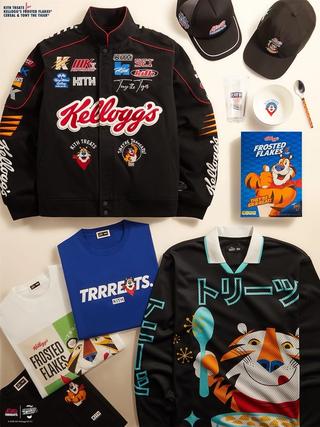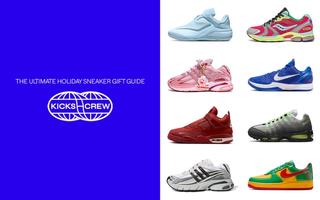The Culture is a Vulture.
The views, thoughts, and opinions expressed in this editorial belong solely to the author and do not necessarily reflect HOUSE OF HEAT’s position.
I’m currently watching the sneaker industry eat itself alive. And you and I are to blame.
Social media is playing such a significant role in the demise of modern day sneaker culture. Today we’re exposed to a thousand pieces of content and more each and every day. Thanks to Instagram, Snapchat, and Twitter, we now have the shortest attention spans in history. Brands, influencers and publishers are all fighting for your attention, and they’re pulling some shifty shit to get it.
Let’s start with the brands. To fight through the sea of silicone titties, poor-tasted memes and highlight videos, they’ve been progressively overloading on sneaker collaborations to capture your attention, leaching onto any and every brand that has an ounce of clout. And they do it because, apparently, exclusivity means something. You can thank Instagram culture for that — flexing your “best life” for the benefit of likes and validation like it’s some sort of happiness cure. It’s resulted in an elitist culture where having the rarest, name-brand collaboration gives you status points. But when did plain old Nike or adidas brand not become enough on its own? For the most part, these sneaker brands have more influence on the market than any of the labels or artists they collaborate with. It’s exclusivity that drives it. But now, the demand for collaborations has, in the end, killed off the collab. No longer does a collaboration hold clout, thanks in part to both the sheer volume of collaborative releases and the quality of the cooperative partner. Sure, the likes of Travis Scott and Big Sean have influence — but as a designer or tangible artist, they don’t hold anywhere near the same value as the likes of Stüssy or KAWS, who have made it big off the back of tangible products and works of art and then implemented their crafts into said collaborations.

Rapping their way to a collab: It seems like every rapper these days has their own sneaker collaboration.
Back when collaborations were in their infancy, they used to mean something. Not only to the consumer but to the brands involved. When collaborations landed to the semi-mainstream early last decade, brands and artists like Vans and Supreme would treat them as bespoke art pieces. They were rare, quality crafts from brands who dedicated much time, care, and consideration to the project. The results were always incredible. These are the true sneaker collaborations. It’s because of these early efforts that the term “collaboration” now automatically evokes attachments of quality and rarity — whether it’s present or not. But, at the same time, outside of the true sneaker culture, hip-hop artists were signing sneaker licensing agreements to make a quick buck. These often had little or no input from the artist, with a clear focus from the brand to leverage their celebrity for hype, and for the celebrity to cash that paycheck.
But of course, all of this is enabled by the sneaker media. Sneaker blogs and Instagram influencers have become part of the beast, turning what was once a passion-based business into a money-first machine. Promoting what’s hyped (or what the brands want them to push) for the sake of clicks, likes, and sales.
Sole Collector, which is now owned by Complex, used to be the authority in sneaker news, culture, and community. But since being sold off, we’ve seen Complex’s true nature bleed through. Leveraging celebrities, who are likely new to the scene, to get clicks, to recently having Gary V on Full Size Run spruiking reselling kicks like its good for the community (but that’s a conversation for another day) — and even going to the lengths of creating a “Sneaker School” that promises to take you places in the sneaker industry. But let’s call it what it really is; a textbook Trump University scam to take your money in place of a worthless qualification that’s guaranteed to get you nowhere. Then there’s Sneakernews, another prominent figure in the culture who, like Complex, are making it increasingly difficult to decipher between what content is promoted and what’s impartial.
But when the bottom line is the basis of what content gets pushed out, is that beneficial for the culture?
Grumpy Old Man: There are some strong, independent voices in the community offering up fresh, critical takes of the culture.
There are, of course, a few individuals trying to change the narrative. The likes of @oldmanalan and @Mr_Unloved1s bring with them fresh and critical perspectives of the industry, reinforcing messages and positivity. But for every voice like theirs, there’s another 11 Yeezy Busters or Qias Omars, each sporting 10-15x the following, and each obviously seeded and sponsored by brands.
But the accountability of the culture starts and ends with you, the reader. You have the power to choose who to follow, what content to engage with,
and ultimately, what to buy. Believe it or not, you dictate the culture. Yes, you. If you don’t buy into the hype, the hype will die. If you don’t put money back in the reseller’s pockets, the wave will pass. If you stop clicking into what’s pushed onto you and begin to think critically about every piece of content you see — not just absorb it like a mindless sponge — publications will be forced to change their approach. And if we do all of that, we can reclaim the culture.




